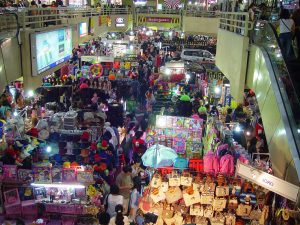Like consumers everywhere, shoppers in Indonesia are confounded daily by disparate claims made by manufacturers and brands about the green credentials of their products. “Greenwashing” is just as prevalent in Indonesia as it is globally.
“Eco-friendly? How?’’ questions the increasingly environmentally-conscious consumer. It’s no surprise that with the lack of answers, consumers are more guarded about such claims even as they move to support environmentally friendly products.
Greenwashing — the deceptive practice of labeling a product as environmentally sound when it isn’t — can be blamed for this, with consumer distrust in brands growing. The practice is so common that researchers have been calling urgently for regulations against greenwashing in Indonesia.
Recent findings also show that greenwashing is having a negative effect on brand-consumer relationships, suggesting that Indonesian millennials are increasingly aware of deceptive environmental claims by businesses.
The trend of purchasing eco-friendly products is not just happening in developed countries. Consumers in developing nations, including Indonesia, are also becoming interested in and opting for environmentally friendly products.
Around 40 percent of people in Indonesia are driven to buy these products out of concern for the environment. This has led to a willingness among Indonesian consumers to pay more for eco-friendly products. As Gen-Z in Indonesia becomes increasingly conscious of product quality and environmental impact, their purchasing decisions are influenced by a brand’s commitment to sustainability.
This shift has prompted many industries in Indonesia to compete in offering eco-friendly goods that meet market demand while pushing their own environmental care credentials. To align with this demand, companies prioritize the quality of their products while also adopting genuinely sustainable practices.
However, the practice of “going green” is often undermined by greenwashing. For instance, some beauty and household cleaning products are marketed as “eco-friendly.” Yet, they continue to rely on chemical ingredients that pose risks to both the environment and human health. Similarly, the fashion industry promotes clothing made from recycled materials but excessive production leads to textile waste. Research on bottled water companies in Indonesia found the same thing.
In Indonesia, the purchase of eco-friendly products is driven by personal factors, particularly the awareness of protecting the environment from climate issues such as flooding and air pollution. Additionally, traditional media, corporate campaigns, and social media play a role in the purchase decision of these products.
Older consumers (aged 60 and above) tend to choose natural products due to their awareness of the importance of maintaining health, a trend that is also followed by younger consumers (aged 35–59).
However, various obstacles throughout the purchase-decision cycle, including a lack of information, trust in online sources, and limited product choices, mean that only a small number of Indonesian consumers actually buy eco-friendly products.
One survey found that consumers hesitate to purchase environmentally friendly products because, before buying, they are often presented with numerous conflicting sources of information, leading to skepticism and confusion.
Despite more than 460 certified eco-labels globally, consumers in the Indo-Pacific feel they lack a single trusted source of information. Additionally, a lack of understanding and education about these products further discourages purchases.
This phenomenon highlights the critical importance of truth and transparency in information regarding eco-friendly products.
There is also growing evidence of consumer confusion regarding the credibility of companies claiming to be environmentally friendly. This erodes consumer trust and hinders their ability to make informed purchasing decisions. As a result, consumer skepticism toward companies’ green claims is increasing.
Many consumers doubt products truly save energy, reduce carbon emissions, and are recyclable in line with environmental protection principles. This is largely due to the limited information available during the decision-making process.
Indonesian consumers employ various solutions when faced with an information deficit about eco-friendly products. This includes searching online platforms for reviews and testimonials from experienced users. Additionally, the availability of product descriptions and details on raw materials are key considerations before deciding to purchase eco-friendly products.
However, if consumers trust a company’s reputation and it is a well-known brand, they often skip a detailed search and directly purchase its green products.
Indonesian consumers are becoming increasingly savvy and aware of the information available online. They verify information from manufacturers, such as product specifications, through evidence shared on company websites or reviews on social media. This highlights the interaction between producers and consumers when purchasing eco-friendly products, as well as the judgment consumers use to evaluate product quality and adopt the information they receive.
Moreover, when manufacturers include eco-labels (such as on electronics and vehicles), pro-environment consumers feel reassured that the producers understand the importance of using eco-friendly materials in production.
However, eco-labels are often rare on other everyday products that claim to be sustainable. Consumers then often resort to various websites and online reviews to suss out genuine eco-friendly products. These include items such as silicone coffee cups, energy-saving LED lights, recycled materials for clothing that avoid animal use, recycled paper tissues, chemical-free soap, shampoo, and organic food.
Despite eco-friendly products often being priced higher and having limited options, the Indonesian government has committed to allocating funds for “climate budget tagging” and supporting the implementation of the Sustainable Development Goals through green financing. This commitment is aimed at attracting green investors to Indonesia.
Although greenwashing is not specifically regulated, there are existing regulations in Indonesia that aim to protect consumers and ensure that companies’ eco-friendly claims are accurate and verifiable.
Originally published under Creative Commons by 360info™.

































